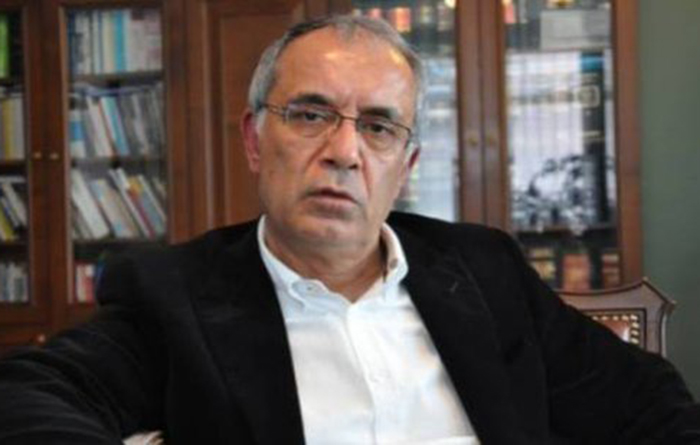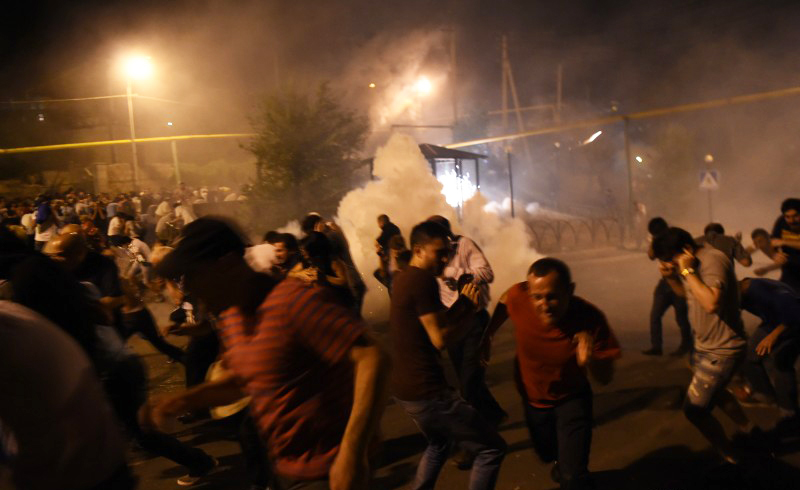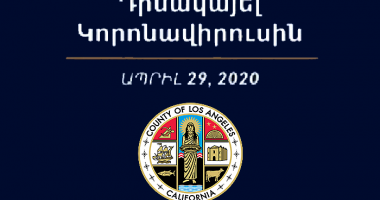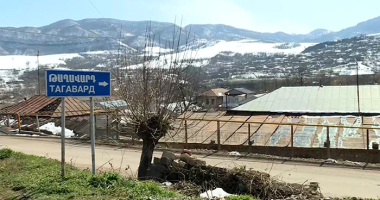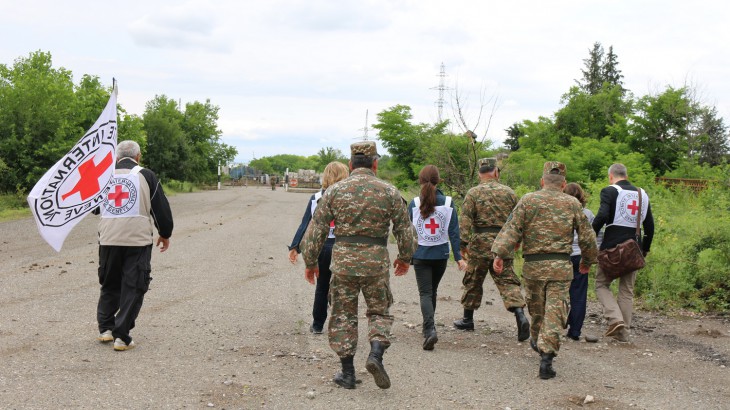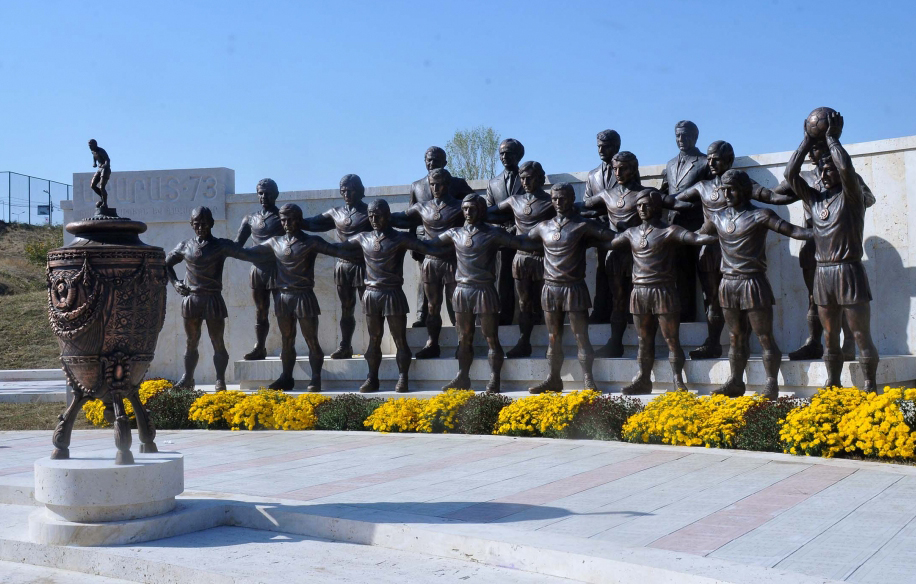By Hambersom Aghbashian
Yusuf Alataş (born in 1948 in Malatya-Turkey) is a Turkish lawyer and human rights activist. He graduated from the Faculty of Law in Ankara University in 1971 and began practicing immediately. After a brief experience at the Radio and Television Corporation of Turkey, he returned in 1979 to his legal career with the Ankara Bar Association. In 1980, Turkey witnessed a military coup d’Etat and martial law was declared. During the years that followed, Yusuf Alataş took various cases in Istanbul’s and Ankara’s Emergency Courts. In 1986, he joined the Human Rights Association IHD in order to defend the people who were subject to human rights violation during the military regime. From 1990 until today, he has been an active member of the İHD, serving successively as a Board member, Deputy Secretary General and Deputy President. He was elected President of the İHD in 2004 and served until 2008. Moreover, Yusuf Alatas was elected Vice-President of FIDH for the first time in 2007 and was re-elected in 2010 and 2013.
Beside his engagement with İHD, Yusuf Alataş continued to defend opposition leaders and institutions. In 1988, he was elected to the Executive Board of the Ankara Bar Association. He was involved in several cases launched against the People’s Labor Party , a party defending the political and cultural rights of the Kurds, the Democracy Party and the People’s Democracy Party. More specifically, he was very active in the defense of Leyla Zana and four other members of the Democracy Party (DEP) arrested in 1994. He became the leader and spokesman of the 100 lawyers who participated in the hearings at the State Security Court. By submitting cases to the European Human Rights Court, Yusuf Alataş facilitated the condemnation of the Turkish government on three occasions and contributed to the release of DEP members in 2004. There have been numerous cases launched against him in ordinary courts and State Security Courts. He was judged twice before the High Criminal Court but the sentences were converted into fines.
Under the title “Turks Apologize for Armenian massacres”, NBCnews.Com wrote on December 15, 2008, “A group of about 200 Turkish intellectuals on Monday issued an apology on the Internet for the World War I-era massacres of Armenians in Turkey. The group of prominent academics, journalists, writers and artists avoided using the contentious term “genocide” in the apology, using the less explosive “Great Catastrophe” instead. “My conscience does not accept that (we) remain insensitive toward and deny the Great Catastrophe that the Ottoman Armenians were subjected in 1915,” read the apology. “I reject this injustice, share in the feelings and pain of my Armenian brothers, and apologize to them.” The apology is a sign that many in Turkey are ready to break a long-held taboo against acknowledging Turkish culpability for the deaths. Historians estimate that, in the last days of the Ottoman Empire, up to 1.5 million Armenians were killed by Ottoman Turks in what is widely regarded as the first genocide of the 20th century. Armenians have long pushed for the deaths to be recognized as genocide. While Turkey does not deny that many died in that era, the country has rejected the term genocide, saying the death toll is inflated and the deaths resulted from civil unrest during the Ottoman Empire’s collapse. Yusuf Alataş is one of the Turkish intellectuals who have signed the apology statement. (1)
www.fidh.org posted on April 17, 2014 a press release titled “Armenian Genocide: discussion between two human rights defenders from Armenia and Turkey”, where it was mentioned that “Artak Kirakosyan, from Armenia, and Yusuf Alatas, from Turkey, both members of the FIDH* International Board, sat down recently at FIDH headquarters in Paris to discuss the 100th anniversary of the Armenian genocide and the prospect for reconciliation between the two countries”. It quoted Yusuf Alatas saying “Turkey has to accept that a genocide was committed on a certain population and only after that can a fair solution be discussed that will satisfy the victims, at least morally.” (2)
“The Armenian Genocide: 100 years on A Manifesto for Memory and Justice” is the title of a Manifesto posted on April 23, 2015 by en.aravot.am. The following are some abstracts : On the eve of the centenary of the Armenian genocide, the first genocide of the twentieth century, FIDH (International Federation for Human Rights) and its member organizations in Armenia, CSI (Civil Society Institute) and in Turkey, IHD (Insan Haklari Dernegi), HRFT (Human Rights Foundation of Turkey), pay tribute to the memory of its victims.
The organizations adopted a manifesto, where, after a preamble it says FIDH and its member organizations in Armenia and Turkey, CSI, IHD and HRFT: Pay tribute to the victims of the Armenian genocide which haunts the memory of humanity; Salute the role of the “just” who saved Armenian lives during the genocide; Solemnly call on Turkey to officially recognise its responsibility in the crime of genocide of Armenian populations, organized and perpetrated by the Young Turk government of the Ottoman Empire;etc.. Yusuf Alatas has contributed to the drafting of the manifesto with other members.(3)
According to www.tert.am, April 23, 2015, “Yusuf Alataş, Vice-President of the Human Rights Association of Turkey, told reporters in Yerevan on Wednesday that genocide is a combination of a number of problems – human rights, political and other ones. Turkey must take serious steps without any preconditions. Turkey’s authorities must admit the Armenian Genocide at a state level, apologize to Armenians and start looking for ways to reconciliation, he said.This is a universal problem, and other nations’ approaches are of importance. However, Turkey must take steps of its own accord. Turkey has the necessary potential, and the two nations must immediately start a dialogue. A dialogue is sure to begin because Turkish society is changing. Turkey must prepare grounds for a dialogue, which requires admission of the Armenian Genocide and opening of the borders. Each state must be able to face its own history, Mr. Alataş said.” (4)
On April 6, 2015, European Grassroots Antiracist Movement (EGAM) released an announcement under the head line “Armenian Genocide: Sign the international call and Remember 24 April1915” where it said (1915-2015: Let’s commemorate the Armenian Genocide in Turkey! Europeans, Armenians and Turks join together and Remember 24 April 1915. Sign the international call: www.remember24april1915.eu). It mentioned that the European Grassroots Antiracist Movement (EGAM) is leading a delegation in Istanbul, along with its Armenian European partner AGBU, and its Turkish partner Durde! and its activists who courageously organize these commemorations for 5 years now, one century after its perpetration. The initiative was supported by numerous personalities (including Charles Aznavour, Bernard Kouchner, Dario Fo, Bernard-Henri Lévy, Adam Michnik, Ahmet Insel, Jovan Divjak, etc..) and representatives of European civil society, who have signed an appeal. A long list of Signatories were mentioned including Yusuf Alataş. (5)
According to armenpress.am, April 23, 2015, “The Turkish human rights defender recognizes the Armenian Genocide and urges his State to apologize to the Armenians. He is confident that the Armenian Genocide is not only a problem of the politics or human rights, but also a general problem. During the press conference, the Turkish human rights defender Yusuf Alataş, who is a member of the executive board of the International Federation for Human Rights Association in Turkey, announced that his State must not call the Genocide perpetrators heroes, but condemn them.
“I share the pain of the Armenians and respect the memory of the Armenian Genocide victims. Our Organization and fund had recognized the Genocide long time ago and work in that direction, so that the state can follow our steps. Turkey and the International community must recognize the Armenian Genocide, to prevent such acts in the future. The organizers of the massacres of the Armenians should not be heroized but condemned,” Alataş underscored. (6)
_____________________________________
*FIDH: The International Federation for Human Rights (French: Fédération internationale des ligues des droits de l’homme) is a non-governmental federation for human rights organizations. Founded in 1922, FIDH is the second oldest international human rights organization worldwide
1- http://www.nbcnews.com/id/28240840/ns/world_news-europe/t/turks-apologize-armenian-massacres/#.V00tiuR-NnQ
2- https://www.fidh.org/en/region/europe-central-asia/armenia/armenian-genocide-discussion
3- http://en.aravot.am/2015/04/23/169867/
4- http://www.tert.am/en/news/2015/04/23/alatash/1655398
5- http://www.egam.eu/armenian-genocide-sign-the-international-call-remember24april1915/
6- http://armenpress.am/eng/news/803006/turqian-chi-karox-pakel-akanjnery-erb-ashkharhy-bxavum.html

